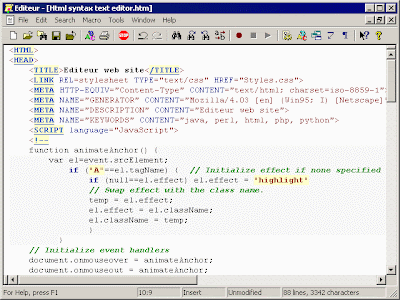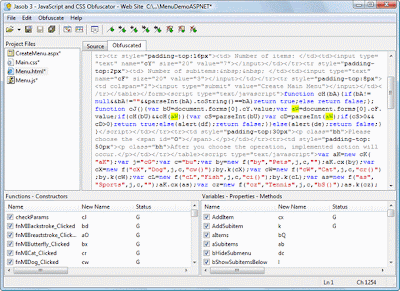URL
URL stands for Uniform Source Locator. URL is used to locate a network a network resource on the internet. Network resource are files that can be plain web pages, programs or graphics. The URL consists of three parts which are network protocol, host name or address and file or resource location.
HTML
HTML is a computer language used to create websites. It is relatively easy to learn whereby most people could do up in a single seating and also quite powerful in what it allows you to create. HTML stands for Hypertext Markup Language. Hypertext is a method to move around the internet which uses hyperlinks whereby clicking on it allows you to move to the stated page. Markup is what HTML tags do to the text inside them such as being Italic and it is a Language as it has code-words or syntax like any other language.
Javascript
A scripting language developed by Netscape in order to make interactive websites. Javascript can interact with HTML source codes thus enabling the web authors to develop better sites with more dynamic content. Javascript is an open language whereby anyone can use it without purchasing a license.
Applets
Applets are programs written in the Java programming language that can be in HTML pages. If you were to view a Java-enabled browser that contains applets, the applet's code is transferred and decoded using a Java Virtual Machine.
Blogs
Blogs are personal internet journals which are usually frequently updated and written in a personal tone. For example, the writer or "bloggers" often write their observations of the world and also include useful websites relating to it. Different bloggers write different theme such as a writer for a newspaper or columnist but with no specialized training necessary.
Wikis
The term "wiki" comes from the Hawaiian word for "fast". Wiki are websites whereby anyone with access to it can modify it quickly and easily. Wiki websites usually have an "Edit" button.
FTP
FTP stands for File Transfer Protocol. FTP allows you to transfer files between two computers on the internet. The FTP "client" initiates a connection with the FTP "server" thus enabling files to be transferred. The server acts a host so clients need proper authorization such as usernames or passwords before they can choose to send or receive files with other computers connected to the host or server.
Plug-ins
Plug-ins are software or hardware modules that add a specific feature or service to a larger system. Basically, the software simply plugs-in to an existing system. Plug-ins are usually based on MIME file types.
Filters
Filters are software programs designed to protect the computer system. Filters are important for those who have internet access as they help prevent computer viruses steal personal information or parents can use filters to keep children away from explicit content.









No comments:
Post a Comment